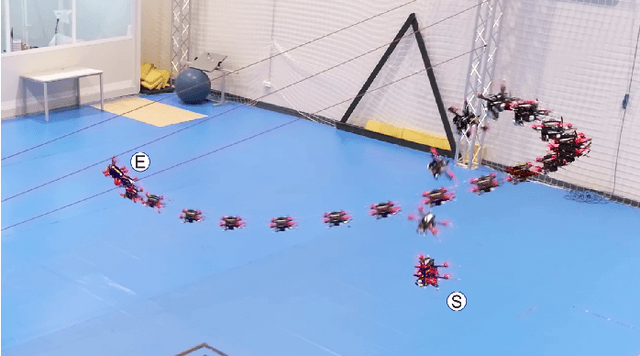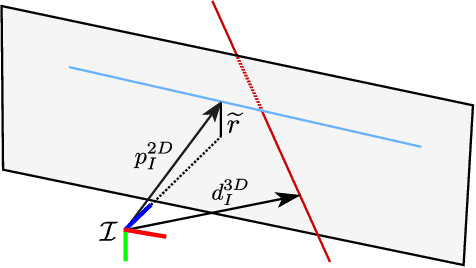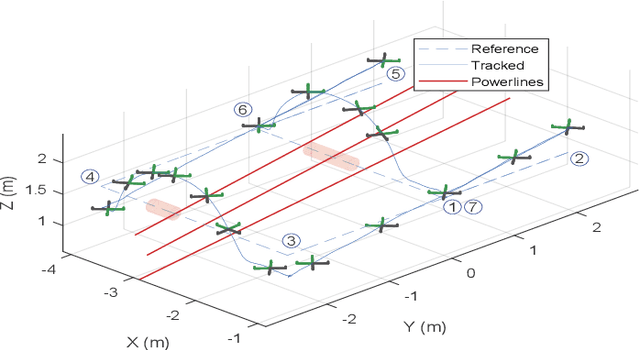Perception-Aware Perching on Powerlines with Multirotors
Paper and Code
Feb 13, 2022



Multirotor aerial robots are becoming widely used for the inspection of powerlines. To enable continuous, robust inspection without human intervention, the robots must be able to perch on the powerlines to recharge their batteries. Highly versatile perching capabilities are necessary to adapt to the variety of configurations and constraints that are present in real powerline systems. This paper presents a novel perching trajectory generation framework that computes perception-aware, collision-free, and dynamically-feasible maneuvers to guide the robot to the desired final state. Trajectory generation is achieved via solving a Nonlinear Programming problem using the Primal-Dual Interior Point method. The problem considers the full dynamic model of the robot down to its single rotor thrusts and minimizes the final pose and velocity errors while avoiding collisions and maximizing the visibility of the powerline during the maneuver. The generated maneuvers consider both the perching and the posterior recovery trajectories. The framework adopts costs and constraints defined by efficient mathematical representations of powerlines, enabling online onboard execution in resource-constrained hardware. The method is validated on-board an agile quadrotor conducting powerline inspection and various perching maneuvers with final pitch values of up to 180 degrees. The developed code is available online at: https://github.com/grvcPerception/pa_powerline_perching
 Add to Chrome
Add to Chrome Add to Firefox
Add to Firefox Add to Edge
Add to Edge